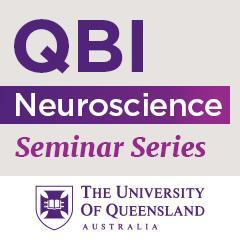A/Professor Brad Sutherland - University of Tasmania, Hobart : "Loss of pericytes and interactions with microglia impact cerebrovascular function: implications for Alzheimer’s disease"

Speaker: A/Professor Brad Sullivan
University of Tasmania,
Tasmania
Title:
Loss of pericytes and interactions with microglia impact cerebrovascular function: implications for Alzheimer’s disease
Abstract:
Pericytes are integral to a functional neurovascular unit, playing key roles in the regulation of the blood-brain barrier and cerebral blood flow. Pericytes respond to numerous paracrine mediators from many different cell types to carry out these functions. However, not all of these interactions are known. Recently, we identified a sub-population of microglia, the brain’s resident immune cell, that are spatially associated with pericytes on blood vessels. Through transgenic reporter mice and two-photon microscopy, we highlight that microglia-pericyte associations are dynamic and can influence blood flow. We also showed that microglia-pericyte associations exist in the human brain and these associations change in Alzheimer’s disease and with APOE ε4 genotype. APOE ε4 is a sporadic risk factor for Alzheimer’s disease and we have investigated whether pericytes are dysfunctional when carrying the APOE ε4 variant using an induced pluripotent stem cell approach. Pericyte loss is also a feature of many neurological diseases and we wished to determine how the brain reacts specifically to a loss of pericytes. Using a transgenic mouse approach, we can deplete pericytes in the brain which impacts behaviour, glial and cerebrovascular function. Therefore, pericytes and their interactions with other cell types in the brain are crucial for the maintenance of cerebrovascular function.
Bio:
Brad Sutherland is an Associate Professor in Neuroscience based at the Tasmanian School of Medicine at the University of Tasmania. Brad graduated with a PhD from the University of Otago (Dunedin, New Zealand) in 2009 and then spent 7 productive years as a post-doctoral fellow at the University of Oxford (UK). He collaborates with multiple world-leading neurovascular labs and was part of the team working with Prof David Attwell to discover the key role of pericytes in the regulation of cerebral blood flow (Nature, 2014). In 2016, Brad was recruited to the University of Tasmania to lead the Perivascular Research Group that aims to understand how blood flow is regulated in the brain and the vascular contribution to neurological diseases. He has been successful in securing category 1 funding including from the NHMRC and MRFF, and has published in leading multi-disciplinary and specialist journals such as Nature and Brain. His current research focusses on the role of pericytes within the neurovascular unit, the regulation of cerebral blood flow, and mechanisms of pericyte dysfunction contributing to the progression of neurological diseases such as Alzheimer’s disease, stroke and multiple sclerosis.
About Neuroscience Seminars
Neuroscience seminars at the QBI play a major role in the advancement of neuroscience in the Asia-Pacific region. The primary goal of these seminars is to promote excellence in neuroscience through the exchange of ideas, establishing new collaborations and augmenting partnerships already in place.
Seminars in the QBI Auditorium on Level 7 are held on Wednesdays at 12-1pm, which are sometimes simulcast on Zoom (with approval from the speaker). We also occassionally hold seminars from international speakers via Zoom. The days and times of these seminars will vary depending on the time zone of the speaker. Please see each seminar listed below for details.



